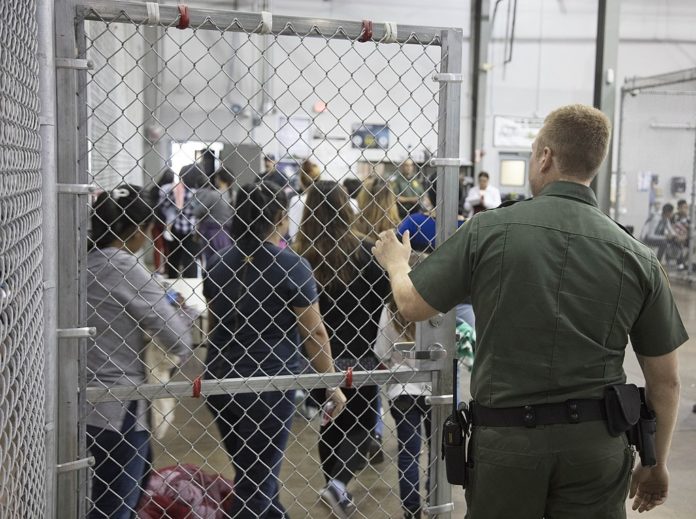
For any attorneys interested in providing pro bono services to immigrants facing legal struggles or detention, an upcoming CLE from the Colorado Bar Association’s Immigration Law Section will offer information, insight and opportunities to get involved for immigration veterans and newcomers.
Immigration experts in private practice and members of the Rocky Mountain Immigrant Advocacy Network will offer a wide array of information and training to those attending the CLE. Topics will range from Asylum Law 101 to advocacy tracks for Children and Survivors of Crime. The day will also include a model immigration hearing, allowing CLE participants a window into what immigration hearings look like, according to the agenda provided on the CBA’s CLE website. The CLE will be held virtually on Friday, Oct. 29, with classes all day from 9 a.m. to 5 p.m.
According to the CLE website, with the presidential administration transition this year and several precedent-setting immigration decisions, “the need for legal representation is greater than ever.”
RMIAN’s Colleen Cowgill, the pro bono coordinating attorney for the detention program, told Law Week that this year’s CLE will cover important aspects for those who’ve practiced pro bono immigration work for some time and for those who’re just starting out.
Cowgill said sessions offered in the morning will dive into the nuts and bolts of how attorneys can appear before immigration courts, what court looks like, differences in types of hearings and what’s expected in each.
The morning sessions will also cover the primary types of cases often seen by RMIAN — asylum cases, withholding of removal and relief related to conventions against torture, Cowgill said. The programs will overview what those cases entail such as applications for release, and how to prepare a case for individuals facing those situations.
The training will also help prepare and advise attorneys on how to work with individuals who are survivors of trauma, practice considerations to keep in mind when working with individuals and how to conduct consultations and practices, according to Cowgill.
In the morning, the CLE will focus on immigration advocacy and practice before immigration courts, asylum and working with trauma survivors. Two separate tracks will be offered in the afternoon: one on advocating for release from immigration detention and the other focusing on advocacy and protections available for children and survivors of crime, according to the CLE website.
Cowgill said the CLE is designed with attorneys with little immigration experience in mind. “It’s really geared for people in that situation,” she said, adding that topics are welcoming to those who have absolutely no familiarity with immigration law and are looking for how to get started in the area.
However, she said that the program isn’t just for new attorneys to the world of immigration work. Recent changes from Department of Homeland Security guidance and how these changes affect immigration cases are key topics for this year’s CLE.
“We’re hoping to address a lot of the changes that have been happening with the change in administrations and immigration priorities, and more generally, the changes in terms of detention populations and how the courts are handling cases,” Cowgill said.
One morning session will focus on asylum cases and talk about the recent changes that the federal government has made to eligibility for citizenship for certain groups, while an afternoon session will touch on options for release from immigration detention and what’s seen boots-on-the-ground in the Aurora Contract Detention Facility, she said.
At the Aurora facility, Cowgill said that numbers have been steadily going up since the pandemic began. While new guidance from the federal government allows some people to be released, larger numbers of people are entering the facility than are being let out. She said that there is a need for pro bono attorneys to help this influx of people.
In an ICE accountability report released on the website of Representative Jason Crow, as of Sept. 22, a total of 675 individuals were in the Aurora facility, 92 new detainees were brought into the facility that week and 133 were released. Nine individuals were quarantined due to sickness, and out of the total detainee population, 600 detainees were male, 75 were female and a single person identified as transgender.
Other topics looking to be covered throughout the day include changes to policies at the border due to COVID-19 and how Immigration and Customs Enforcement are considering detainee releases in light of new enforcement guidance from the federal government, according to Cowgill.
Another new aspect covered by the CLE this year will be an afternoon session centering on prosecutorial discretion and current practices in immigration court, Cowgill said. “That one is really going to dive more deeply into these options that have opened up more recently to attorneys and now ICE and DHS are being encouraged to consider prosecutorial discretion in certain cases,” Cowgill said.
For attorneys who sign up to take on a pro bono immigration case in the next year, Cowgill said the CLE is offered at a discounted price. And, if an attorney isn’t ready to take a case immediately after the CLE, there are also opportunities for helping in many areas outside the courtroom. The discounted rate for pro bono volunteers is $75.
“Our hope with this training is that people will then feel more comfortable,” Cowgill said.
Faculty for the CLE will include multiple experts from RMIAN, including Cowgill; Green & Maris, P.C.; Elkind Alterman Harston PC; Kolko & Casey, P.C.; Lichter Immigration; Lisa Green & Associates PC; and the Law Office of Hans Meyer.

